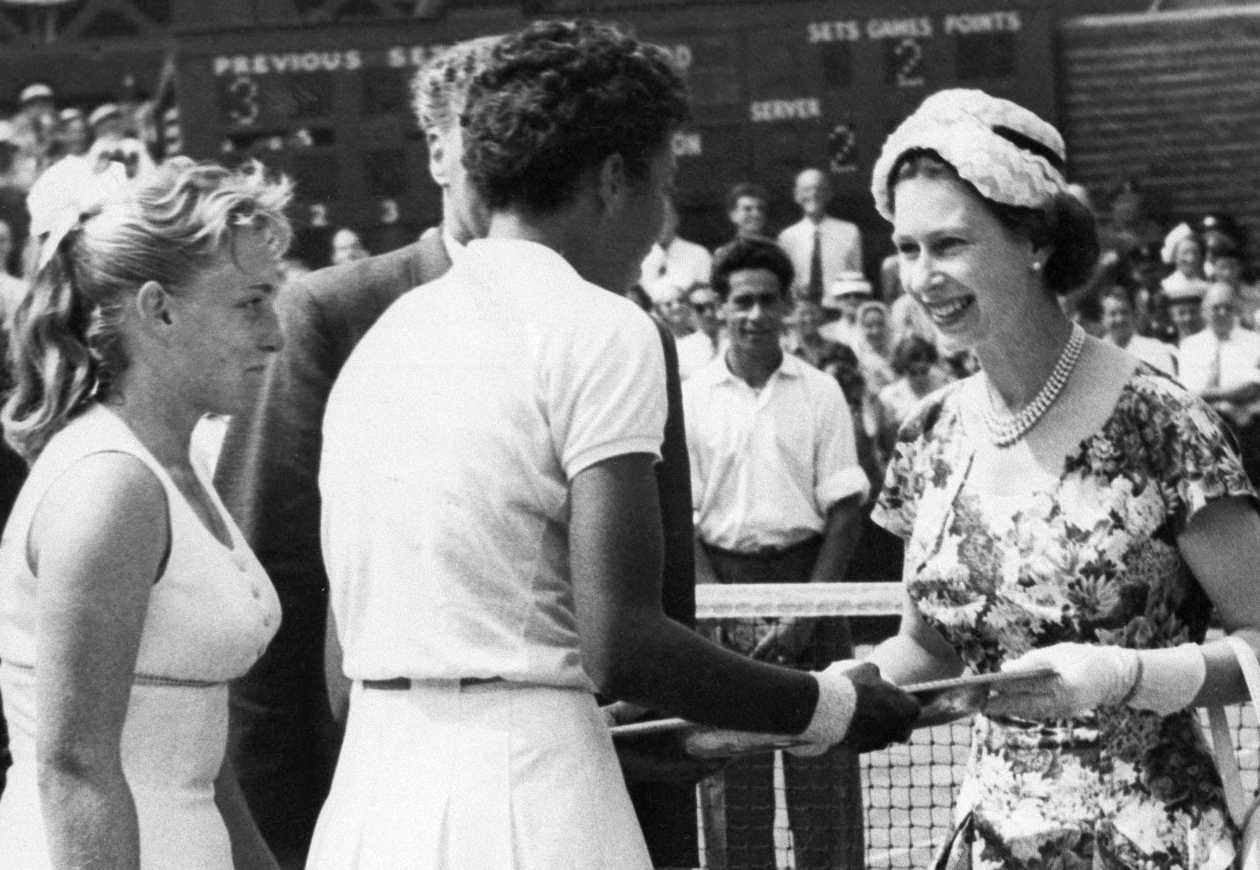Althea Gibson, a champion athlete and a pioneer in both amateur tennis and professional golf, overcame incredible odds and racial prejudice to achieve international acclaim. She became the first black player to win the U. S. national title and the first to win the Wimbledon singles title.
For the second time, she won Wimbledon and U. S. Nation championship in 1958, ranking No. 1 in the U. S. and the world.
Born in the cotton fields of South Carolina on August 25, 1927, to sharecroppers, Gibson grew up on the violent street of Harlem. She began playing tennis as a teenager and went on to win the national Black women’s championship twice.
“It all started with paddle tennis on the play streets of New York City,” Gibson told a BBC Radio 4 programme in 1989. “Two bats and a sponge rubber ball. A short net and a short court. A friend of mine came round, we saw the bats and ball on the paddle tennis court so we started hitting back and forth.”
“From that moment on we would get up in the morning as soon as they laid the court. That’s how I got started,” she said.

Teenage Gibson began to attract attention when her father reportedly forced her to fight him on the rooftop of their apartment block. Soon she was spotted by Buddy Walker, the organizer of the play street on West 143rd, and a bandleader at a Harlem bar ran by Robinson.
Walker took Gibson to the Cosmopolitan Club, a private tennis club for the black middle classes in West Harlem where the club’s one-armed professional, Fred Johnson started training her.
“She was a blue-collar kid and the black folks playing tennis were the bourgeoisie, who would try to school her in etiquette,” Rex Miller, a film director inspired to produce the documentary Althea after seeing a picture of his mother playing against Gibson, told the BBC Sport
At the all-black American Tennis Association (ATA) national championship in 1946, two scholars who nurtured promising black players spotted Gibson and were impressed about her natural ability.
The two men decided to give her an education since she had none. She would live and train with Dr Eaton, the chief surgeon at the African-American hospital in Wilmington, North Carolina, during the school year, then stay with Dr Johnson in Lynchburg, Virginia, in the summer.
At 18, Gibson graduated from high school and went on to study at Florida Agricultural and Mechanical University on a sports scholarship. She won 10 straight ATA national titles between 1947 and 1956.

But as is the case at the time, tennis was largely segregated and it was abnormal for black athletes to play in the white tournaments so black folks usually played among themselves.
However, that would change when four-time U.S. National winner Alice Marble advocated on Gibson’s behalf and she was invited to make her United States National Championships (now known as the U.S. Open) debut in 1950.
In 1956, Gibson’s shot to the limelight when she won the singles title at the French Championships (now known as the French Open) becoming the first African American to do so.
The following year, Gibson won Wimbledon, defeating Darlene Hard. She became the world’s best. In September 1957, she won the U.S. Open, and the Associated Press named her Female Athlete of the Year in 1957 and 1958. Gibson won 56 singles and doubles titles as well as 11 major titles during the 1950s.
She retired from amateur tennis and toured with the Harlem Globetrotters basketball team, playing exhibition tennis matches before their games in 1960. In 1964, she joined the Ladies Professional Golf Association Tour, becoming the first black woman to play on the professional golf tour.
The pioneering athlete played pro golf until 1971. In the same year, she was voted into the National Lawn Tennis Association Hall of Fame. Despite her successes, Gibson earned little money.
She became financially constrained. She couldn’t pay her rent and bill. It got serious that she contemplated suicide but for the timely intervention of her friend Angela Buxton.
“There was no money in the game, and she had no money to start with, so she was in a very difficult position,” Buxton said. With the help of a journalist friend, Buxton wrote to the prestigious Tennis Week magazine and asked them to print a letter outlining Gibson’s predicament.
“Five months later, out of the blue, I got a call from an American woman playing at Forest Hills. She had seen it on page three – letters to the editor – and said she would like to help. “Then money started flowing in from all over the world.”
“In all types of currencies, there was close to a million dollars. That money allowed Gibson to survive. It allowed her to make two final lavish purchases: a new Cadillac car and a large television so she could pass the time watching sport”, Buxton revealed.
Buxton claimed that a number of high-profile tennis stars ignored Gibson’s pleas for financial help before her intervention, which she believes gave the American “another eight years of life” before she died in 2003, having suffered from deteriorating respiratory problems.
Gibson served as New Jersey’s commissioner of athletics from 1975 to 1985. 70 years after not allowing her to play at the US Open, a life-size monument of her was unveiled at the home of the USTA.










